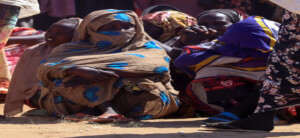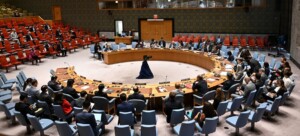School student raped by police officer in Sudan’s Blue Nile state
On 12 December, a police officer raped a 16-year-old girl in Geisan in Sudan’s Blue Nile state.
The police refused to record a complaint twice, the Kampala-based Sudanese human rights organisation HUDO reported in a press statement on Monday.
According to the statemen, a police sergeant lured the victim to his house in Medina-12 village, where he raped her.
 Blue Nile state (UN maps)
Blue Nile state (UN maps)
On 12 December, a police officer raped a 16-year-old girl in Geisan in Sudan’s Blue Nile state. The police refused to record a complaint twice.
The Kampala-based Sudanese Human Rights and Development Organisation (HUDO) reported in a press statement on Monday, that a police sergeant lured the victim to his house in Medina-12 village, where he raped her.
After she returned home, her family took her to the village health centre, where the rape was confirmed.
Yet, when the relatives wanted to lodge a complaint against the rapist, the police refused to record the crime. Instead, they forced them to send the victim to Ed Damazin, capital of Blue Nile state, the following day for medical investigation.
The findings of the doctor in Ed Damazin were different, HUDO states. When the family went to the police, now to open a case based on the new medical report, they were again sent away.
The girl is in very bad psychological state because of the rape and the repeated refusal of the police to take her seriously.
HUDO expresses its serious concern about the incident, and calls on the Sudanese Minister of Justice to ensure the implementation of the Rule of Law and on the police in Blue Nile state to carry out “a genuine investigation” and bring the suspected officer to justice.
The human rights watchdog also appeals to Sudanese and international civil society organisations to focus more on human rights violations in conflict areas.
Civil war broke out in Blue Nile state on September 1, 2011, almost three months after fighting between government forces and rebel combatants resumed in South Kordofan. Peace negotiations between the rebels and the government led by Omar Al Bashir failed several times. After the ousting of Al Bashir and the formation of a new government, comprehensive peace talks started in the South Sudanese capital of Juba in early September.
Radio Dabanga’s editorial independence means that we can continue to provide factual updates about political developments to Sudanese and international actors, educate people about how to avoid outbreaks of infectious diseases, and provide a window to the world for those in all corners of Sudan. Support Radio Dabanga for as little as €2.50, the equivalent of a cup of coffee.












 and then
and then